|
Passing new voting rights legislation has been a top priority for the Democrats ever since Republican held state houses began legislating new restrictive laws in the aftermath of the 2020 presidential election. To no one’s surprise, the Democrat sponsored “For the People Act” failed to advance in the Senate after a test vote was blocked by Republicans on June 22, 2021. But the real concern is the legislative actions taking place in many states to restrict access to voting. Are we witnessing an erosion of voting rights in this country, and what does it mean for our democracy? For the People Act: The bill would have been the largest federally mandated expansion of voting rights since the Voting Rights Act of 1965. It was initially compiled in 2019 as a liberal wish list, or messaging bill, for voting rights reforms. But it was rushed through the House as H.R.1 and handed to the Senate as S.1 ( https://www.congress.gov/bill/117th-congress/senate-bill/1/text), to counter Republicans’ actions at the state level. With over 800 pages, it was overly broad in scope and represented overreach by the Democrats. The bill was doomed from the start, with little chance of getting the needed 60 votes in the Senate. Main Provisions of the For the People Act:
There were critics of the bill on both sides of the political aisle. In addition to federal overreach into states’ affairs, the timelines were unrealistic, and it required costly upgrades to equipment and processes. With little chance of passage, why did the Democrats push for the bill? It was a way for Democrats to publicize their opposition to moves by several Republican lead states to impose new voting restrictions, and to put Republicans on notice that they will be watching as state and congressional district maps are redrawn in the coming weeks. Republican Controlled State Houses Restrict Voting Access: Since the 2020 presidential election, 31 new laws have been passed in 18 states restricting voting access, and several more are pending (https://tracker.votingrightslab.org/). These new laws vary by state, but include the following:
Republican Motivations Behind New Restrictive Voting Laws: Republicans claim that these new voting measures are needed to make elections more secure. It seems odd that the exact measures taken to make the 2020 election among the most secure and safest in our history, are the ones being dismantled in Republican controlled states. Numerous recounts, audits, and court orders have found no significant fraud in the 2020 election. So why the rush to impose new voting restrictions in Republican controlled states? In a word, Trump! The majority of Republicans believe that the election was stolen from Donald Trump (https://www.cnn.com/2021/04/11/politics/voting-restrictions-analysis/index.html). Tightening election laws perpetrates the “Big Lie” about the election being stolen, and demonstrates loyalty to Donald Trump. Fear of alienating Donald Trump, and by extension his loyal base of supporters, is driving the narrative and motivating the actions of many Republican politicians. It's Not All Bad News at the State Level: There have been 71 new laws easing voting rules across 28 states as of June 13, according to the Voting Rights Lab tracker. These new laws were enacted to increase voter turnout or to make permanent the changes made to make voting easier during the pandemic. Some of the changes include offering more early voting and mail-in options, and making it easier to register to vote. Several states have, or are in the process of restoring rights to people with past felony convictions. This trend is not just happening in blue states. Indiana, Kentucky, Louisiana, and others recognize that making voting more difficult hurts all voters. Justice Department Takes Action: Congressional Democrats vow to continue to fight for voting rights. But as they turn their attention to the Infrastructure Bill, no one expects new voting rights legislation anytime soon. It will be left to the Justice Department to monitor and defend against voter suppression. On June 11th Attorney General Merrick Garland pledged to combat efforts to restrict ballot access, and to prosecute those who threaten or harm election workers (https://www.npr.org/2021/06/11/1005717622/ag-garland-vows-to-defend-voting-rights-as-the-cornerstone-of-american-democracy). The Justice Department will double the size of its voting rights and enforcement staff, and will scrutinize state laws that violate the Voting Rights Act (https://www.britannica.com/event/Voting-Rights-Act). The department will also watch over upcoming redistricting efforts, especially if any result in disadvantaging people of color. True to his word, the Attorney General last week announced that his department will sue the state of Georgia over new voting laws that it recently passed (https://www.usatoday.com/story/news/politics/2021/04/10/georgia-new-voting-law-explained/7133587002/). Attorney General Garland stated that the suit was being brought because Georgia’s laws were “enacted with the purpose of denying or abridging the right of black Georgians to vote”. For this democracy to work it is vital to get as many people engaged in the process as possible. This means getting more people to vote, not less. Lifting barriers that prevent people from voting is critical for this to happen. Restricting voting rights will only create mistrust of the electoral process, our elected officials, and our government. Increasing voting access strengthens democracy, restricting it weakens it. The false narrative put forth by Donald Trump and his supporters following the 2020 presidential election, culminated in the January 6th Capitol riot, giving us a glimpse of what a fragile democracy looks like. Erecting barriers to voting will erode confidence in the election process, and we can’t let that happen. Update July 13, 2021: On July 1, 2021 the Supreme Court ruled that the states may impose restrictions on voting, upholding restrictive voting laws recently passed in Arizona. The Court’s majority ruled that the Voting Rights Act of 1965 can be used to strike down voting restrictions only when they impose substantial and disproportionate burdens on minority voters (https://www.nytimes.com/2021/07/01/us/politics/supreme-court-arizona-voting-restrictions.html). In other words, it is constitutional for states to put voting restrictions in place as long as they are only an inconvenience, and do not prevent someone from voting. Writing for the majority, Justice Alito listed the following guideposts for lower courts to follow in evaluating voting restriction cases:
This last guidepost gives powerful ammunition to any state legislature intent on making access to voting more difficult. The Supreme Court’s ruling will make it difficult to oppose voting restrictions being put into place in many GOP governed states. It will be interesting to see if this ruling will hamper the Department of Justice’s pending lawsuit against the new Georgia voting law. If you enjoy reading this type of commentary please subscribe to my blog and tell a friend. You will receive an email notification when new blogs are posted. The email will come from the site’s email: armchairamerican1776 @gmail.com. Thanks, Armchair American
0 Comments
The World Health Organization has identified vaccine hesitancy as a leading global health threat, which left unchecked could lengthen the duration of the COVID-19 pandemic. The United States is far ahead of most nations in vaccinating its population. But even the Centers for Disease Control and Prevention recognizes that reaching herd immunity is no longer a realistic goal. The best hope to mitigate the consequences of the pandemic is to get as many people as possible vaccinated, within the shortest period of time. President Biden has a goal of getting at least 70% of the adults in the U.S. vaccinated with at least one shot by the 4th of July. This should be achievable, but it won’t be easy. To date about 64% of adults have received at least one COVID shot. But the pool of adults willing and able to get vaccinated is shrinking. Lack of access and misinformation are leading to vaccine hesitancy and outright refusal to get the shot. Lack of access to the vaccine in certain populations is a big challenge, but one that can be overcome with time and resources. Reaching the homeless, migrant workers, shut-ins, and isolated rural communities present logistical challenges. The more difficult challenge will be to overcome all the misinformation out there and get through to those refusing to get vaccinated. Who is Hesitant about Getting Vaccinated: The Kaiser Family Foundation COVID-19 vaccine tracking poll tracks vaccination rates and behavioral attitudes towards vaccinations among various demographic groups, https://www.kff.org/coronavirus-covid-19/dashboard/kff-covid-19-vaccine-monitor-dashboard/?gclid=EAIaIQobChMI_qiK1aGI8QIVIPHjBx2Ejw5SEAAYAiAAEgJt2fD_BwE. Here is some of the latest data on adult vaccination rates in the U.S.:
The people in the last two groups, making up 20% of the adult population in the U.S., are considered “hesitant” about getting the vaccine. This hesitant group tends to be younger, Republican, and from rural communities. Here is the breakdown for these groups: Group Hesitant or Outright Skeptical Ages 30-49 28% Republicans 36% From Rural Areas 27% The most significant determinant among all groups, including race and gender, was the level of education. Working class members of every demographic group are less likely to be vaccinated and are hesitant to do so. People with a college degree are twice as likely to be vaccinated than those without a degree. Nearly 25% of all adults without a college degree fall into the vaccine hesitancy group. People in the “wait and see” group tend to be the young and people of color. Reasons for Vaccine Hesitancy: To overcome vaccine hesitancy it is important to understand the root causes. The predominate cause is misinformation, but here is a partial list of other reasons.
Overcoming Vaccine Hesitancy
Here are some other messaging points put together by Sherita Hill Golden, MD, Professor of Medicine at Johns Hopkins, to assist in overcoming vaccine misinformation:
Consequences of Not Getting Vaccinated
Getting a COVID-19 vaccine is a very personal choice, and although I believe that most adults should get vaccinated, it should not be forced upon them. There are some very legitimate reasons for some people not to get vaccinated, such as deeply held religious beliefs and some underlying medical conditions. For the benefit of the community, the country and the world, all people eligible to receive the vaccine should, for the common good. There was a strong consistent message when the polio vaccine was introduced in the 1950s. It gained widespread acceptance under the banner “we’re all in this together”. Will this message resonate in our polarized world? Let’s hope and pray that it does.
Update July 13,2021: The pandemic is far from over, but you wouldn’t know it by walking down the streets of most American cities. The world recently surpassed the grim milestone of 4,000,000 deaths due to COVID-19. This was the official death toll, but the actual death toll is certainly much higher. Approximately 25% of the world’s adult population has received at least one shot of COVID-19 vaccine, mostly in the rich countries. Less than 1% of the adults in low- income countries (Africa, Asia, South America, Central America) have received a single shot of the vaccine. On June 15th the U.S. surpassed 600,000 deaths due to COVID-19, and the death rate continues to climb, mainly among those who have been unvaccinated. President Biden missed his July 4th goal of getting 70% of eligible adults vaccinated with at least one shot. As of this writing just under 68% of adults have received at least one shot. COVID-19 cases have come down significantly in the U.S. over the past few months due to the highly effective vaccines. As a result, most areas of the country have dropped all COVID-19 related restrictions. Mask mandates, social gathering restrictions, and indoor business restrictions have disappeared, and domestic travel has returned with a vengeance. But this rosy picture hides vast geographic disparities which show a significant rise in hospitalization rates and deaths due to COVID-19 in regions with low vaccination rates. Rural areas, which tend to be conservative, have seen a recent rise in COVID-19 cases. Low vaccination rates make these populations vulnerable to the highly contagious Delta variant. Arkansas and Missouri are seeing the worst outbreaks, followed by Florida, Nevada, Wyoming, and Utah. But unvaccinated people are driving increases in COVID-19 cases even in areas with high vaccination rates. This corresponds with the lowering (or elimination) of COVID restrictions and the emergence of the Delta variant. I live in a county north of San Francisco, where 68% of eligible people are fully vaccinated and another 8% are partially vaccinated. But there has been a troubling uptick in COVID-19 cases and hospitalizations, even before the full effects of 4th of July gatherings are felt. The vast majority of the hospitalized COVID-19 patients are unvaccinated. Contact tracing has shown that most of the current COVID-19 cases in my county are being fueled by social gatherings and leisure time activities, with the highest rates in the 18-32 age group. Vaccine hesitancy continues to align significantly with party affiliation. According to a recent Washington Post-ABC News poll, 6% of Democrats said they are not likely to get vaccinated, compared with 47% of Republicans, including 38% of Republicans who said they definitely will not get the vaccine https://www.washingtonpost.com/politics/post-abc-poll-biden/2021/07/03/54e95b6e-db43-11eb-8fb8-aea56b785b00_story.html. First detected in India, the Delta variant is estimated to be 60% more transmissible than earlier variants. The Delta variant has rapidly spread around the globe and is currently driving COVID-19 outbreaks in African, Asia, Australia and South America. The CDC has determined that the Delta variant is now dominant in the U.S. and is spreading rapidly in unvaccinated populations. Researchers in France, Israel and Britain have shown that a single dose of the Pfizer or AstraZeneca vaccine is largely ineffective against the Delta variant. Therefore, delaying the second shot in order to vaccinate more people is no longer an effective option. New variants, like the Lambda variant spreading rapidly in South America, provide more reason to quicken the pace of vaccination around the world. The unvaccinated population provides a breeding ground for new variants, and short of shutting down the world, vaccines are our only real defense. Pfizer made news last week by announcing that it would seek FDA approval for a COVID-19 booster vaccine. The CDC and NIH strongly rejected the need for vaccine boosters at this time, refuting the claims made by Pfizer. But many in the scientific community acknowledge that it is not a matter of if, but when booster shots will be needed. Preliminary research out of Israel suggests that the Pfizer vaccine is less effective against the Delta variant and there is a decline in antibody levels against the virus over time. I think that we should be prepared for the eventuality of booster shots, but we need to think through the ethical issues involved. Is it ethical to provide booster shots to fully vaccinated people in wealthy countries when the vast majority of people in poorer countries remain unvaccinated? Israel plans to offer booster shots of the Pfizer vaccine to adults with weakened immune systems, and Britain has announced plans to provide booster shots to its vulnerable populations and front-line workers. It makes sense to protect our most vulnerable, but it seems premature to do so when there is a limited supply of vaccines. The FDA warned this week that the Johnson & Johnson COVID-19 vaccine can lead to an increased risk of Guillain-Barré syndrome, a rare neurological condition. The incidence is very rare, and the benefits of this highly effective vaccine outweigh the risks. But I fear that this warning from the FDA will further diminish the acceptance of this much needed vaccine. The vast majority of hospitalizations and deaths due to COVID-19 are occurring in unvaccinated people. The evidence is overwhelming. Unvaccinated people pose a risk to themselves and to vulnerable populations who have been vaccinated. No vaccine is 100% effective and breakthrough infections do occur. The incidence of COVID-19 is eleven times higher in unvaccinated people than vaccinated ones. If that isn’t an incentive to get vaccinated, I don’t know what is. Encourage everyone you know to get vaccinated. Regarding the use of face masks, do like I do, don’t leave home without one. If you enjoy reading this type of commentary please subscribe to my blog and tell a friend. You will receive an email notification when new blogs are posted. The email will come from the site’s email: armchairamerican1776 @gmail.com. Thanks, Armchair American On February 15, 2021 Speaker of the House Nancy Pelosi announced that Congress would establish an independent, September 11-style commission to “investigate and report on the facts and causes relating to the January 6, 2021 domestic terrorist attack upon the United States Capitol Complex…and relating to the transfer of power.” The House passed the bill on May 19, 2021, mostly along party lines. This past Friday the bill failed in the Senate by a vote of 54-35, short of the 60 votes needed to pass. Senate minority leader Mitch McConnell and his Republican colleagues were successful in blocking the formation of the independent commission. What do they gain from this move, and is it in the best interests of America? Purpose of an Independent Commission: Independent fact-finding commissions after major historical events are not new. They were used to investigate the Japanese attack on Pearl Harbor, the assassination of President Kennedy, and the terrorist attacks on September 11, 2001. Similar to the commission formed in response to the attacks on September 11, it would consist of a panel of ten independent experts, evenly split between Republican and Democratic appointees, who would investigate the events of January 6, 2021 on a full-time basis. The commission would have full authority to subpoena witnesses and broad authority to pursue and connect various lines of inquiry. It would compile a single comprehensive record for American history, and hopefully provide some closure for the American people. The primary purpose of the commission is to get at the truth. Being independent and bipartisan, it is much more likely to provide the facts that Americans will trust. Any reports that result from the various congressional investigations now underway will likely be viewed through a partisan lens. Aren’t Existing Investigations Enough: There are currently several investigations underway by various governmental departments looking at different aspects of the Capitol riot. The Justice Department is investigating and prosecuting hundreds of individual rioters, inspectors general are examining their agency's response to the riot, and various congressional committees are looking into the Capitol riot. The Justice Department’s investigation is one of the largest criminal inquiries in U.S. history, https://www.nytimes.com/2021/05/29/us/capitol-attack-inquiry.html. But each of the 450 or so defendants are being charged as individuals for specific crimes that they may have committed. Most of these criminal cases will be resolved through plea deals and never end up in court with questioning under oath. The Justice Department is not tasked with big picture issues like what motivated the riot, were the rioters coordinated, were members of Congress involved, and how does Donald Trump fit into all of this. There is a joint investigation underway by the Senate Homeland Security Committee and the Rules Committee. These committees are investigating the actions of the Capitol Police, the Defense Department, and the broad government response to the violence at the Capitol on January 6. But here again, the investigations are narrowly focused on questions of policing and security. Questions about the political motivations of the mob, and the role of the president and members of Congress will be ignored. Another limitation with congressional investigations is the limitations on the committee members themselves. Members of Congress are often pulled away from investigative work to address the ongoing business of the Congress. Inspectors general at the Pentagon, Justice Department, and Capitol Police Department are all examining their agency’s response leading up to and during the Capitol riot. These examinations will be narrowly focused on the specifics of their departments and not coordinated with other agencies. They are too narrowly focused to get to the truth that the American people need, and may leave many questions unanswered. Unanswered Questions Remain: Now that the Republicans have blocked the establishment of an independent commission, the full story surrounding the Capitol riot on January 6, 2021 may never be known. Here are some of the key unanswered questions:
Why Republicans Blocked the Commission: Plain and simple, the Republicans put the good of their party ahead of the good of the country. Donald Trump is the de facto head of the Republican Party, and anything that discredits him, damages the party. Donald Trump openly opposed establishment of the independent commission. Out of loyalty or fear, most Republicans went along with his wishes. Senate minority leader Mitch McConnell is no fan of Donald Trump, but his party loyalty outweighs his animosity towards him. McConnell is shrewd enough to know than an independent investigation of January 6 would put Donald Trump back into the spotlight and expose the consequences of his lie that the election had been stolen from him. In voting against the commission, McConnell called it redundant, and said, “I do not believe the additional extraneous commission that Democratic leaders want would uncover crucial new facts or promote healing.” I guess we will never know thanks to Mitch and his Republican colleagues. Soon after the Capitol riot, McConnell and fellow Republican Senator Lindsey Graham went on the record by stating that Donald Trump had culpability in the riot, and that a 9/11 style commission should investigate, https://www.theguardian.com/us-news/2021/feb/15/us-capitol-attack-commission-9-11-style-trump. I guess they have changed their tune knowing that Trump is still in charge. Ever the politician, McConnell has succeeded in turning the focus back to opposing the Biden Administration’s agenda, and taking back the Senate in the 2022 mid-term elections. What’s Next: With so many unanswered questions and the threat that the Capitol riot posed to our democracy, the Democrats will not let it go. Democratic leaders Schumer and Pelosi are now planning to create a select committee to investigate the Capitol riot. What good this will do is anyone’s guess. But clearly it will not be as bipartisan and independent as a 9/11 style commission would be. Since both Houses of Congress are controlled by the Democrats, it could prove to be a strategic mistake by the Republicans. The Republicans want to downplay the events of January 6, 2021 and move on, but the Democrats, and all fair-minded Americans, won’t let them. As Andrew Young once said, “There can be no democracy without truth”. The purpose of the independent commission to investigate the Capitol riot was to establish the truth. But that has been denied to the American people. We owe it to the Capitol Police officers who were killed or injured that day to find the truth. After the 9/11 attacks the country came together, put partisanship aside, and put a commission together to get to the truth. Have we changed so much as a country in just the past 20 years? Apparently, we have. Politics has once again trumped the good of the country.
Capitol Riot Update: July 21, 2021 Select Committee Approved to Investigate Capitol Riot: On June 25, 2021 the House of Representatives approved legislation to create a select committee to investigate the January 6th Capitol Riot. Only two Republicans voted in favor of the legislation, Liz Cheney and Adam Kinzinger. The select committee will have eight members selected by Speaker of the House Nancy Pelosi, and five members by House Minority Leader Kevin McCarthy. The committee will have subpoena power to order witnesses to testify. The committee’s main task is to investigate “the facts, circumstances and causes relating to the January 6, 2021 domestic terrorist attack”. The committee is also charged with looking into the law enforcement and government response to the storming of the Capitol and the factors that fomented such an attack. The committee has no set end date to report its findings, conclusions and recommendations for preventing such attacks in the future. Pelosi Announces Her Picks for the Select Committee: On July 1st, Nancy Pelosi announced that she had picked the following eight Representatives for the committee: Bennie Thompson (D-Mississippi), selected as Chairman of the committee. Adam Schiff (D-California) Jamie Raskin (D-Maryland) Zoe Lofgren (D-California) Pete Aguilar (D-California) Elaine Luria (D-Virginia) Stephanie Murphy (D-Florida) Liz Cheney (R-Wyoming). This is the most surprising pick. But upon closer inspection, maybe not. Liz Cheney was ousted from her Republican leadership position for criticizing former President Donald Trump for his lies about the stolen election and his role in the Capitol riot. McCarthy Announces His Picks for the Select Committee: On July 19th, Kevin McCarthy announced the following five GOP nominees to the Democrat led select committee: Jim Banks (R-Indiana), ranking member. Rodney Davis (R-Illinois) Jim Jordan (R-Ohio) Kelly Armstrong (R-North Dakota) Troy Nehls (R-Texas) Pelosi Rejects Two of McCarthy’s Picks: Today(July 21, 2021) Nancy Pelosi rejected two of Kevin McCarthy’s picks, Jim Jordan and Jim Banks. Pelosi saw these two Trump loyalists as impediments to the integrity of the committee’s investigation. She is probably correct, but she has handed the Republicans ammunition to their claim that the committee will lead a partisan attack on Trump and his supporters in an attempt to damage the Republican brand. To that I say that the Republicans had their chance for a bipartisan commission, but they rejected it in the Senate. It is no surprise that McCarthy slammed Pelosi’s move. "Unless Speaker Pelosi reverses course and seats all five Republican nominees, Republicans will not be party to their sham process and will instead pursue our own investigation of the facts," McCarthy said. Democrats have pledged to move forward with the committee’s work and the first hearing will begin next week. Stay tuned. Capitol Security Six Months Later: This past weekend the metal fencing and concrete barriers that encircled the Capitol were removed. The Capitol grounds are now open again to visitors and pedestrians, but the Capitol building remains closed to the public. The House passed a $1.9 billion security bill in May to strengthen the Capitol building, add additional surveillance, and other measures. The Senate Democrats have introduced their own version which includes additional funding to aid Afghans who supported US efforts in Afghanistan and COVID protections for the Department of Defense. The price tag for this proposal is $3.7 billion and is unlikely to get much Republican support. On-Going Investigation: To date approximately 550 people have been arrested for taking part in the Capitol riot. Charges for those arrested include unlawful entry, vandalism, conspiracy and assault. So far twenty people have plead guilty, mainly to misdemeanors, but only three have been sentenced. The most serious being Paul Hodgkins from Florida, who pleaded guilty to a single felony count of obstruction of an official proceeding before Congress. Mr. Hodgkins was sentenced this month to eight months in prison. Law enforcement officials are still trying to identify over 300 suspects who were captured on video at the Capitol on January 6th. If you enjoy reading this type of commentary please subscribe to my blog and tell a friend. You will receive an email notification when new blogs are posted. The email will come from the site’s email: armchairamerican1776 @gmail.com. Thanks, Armchair American |
AuthorThe Armchair American. Archives
November 2024
Categories
All
|
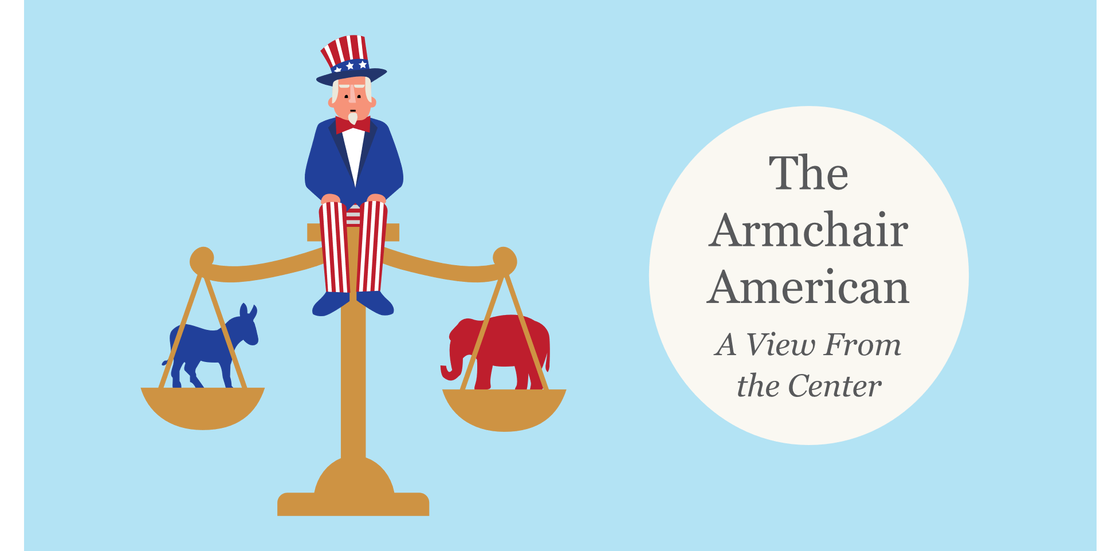
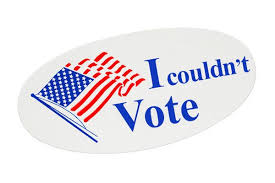
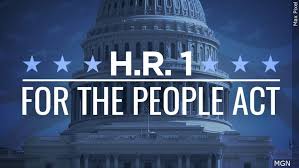
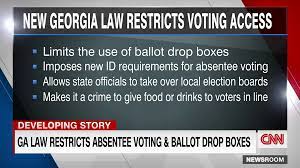
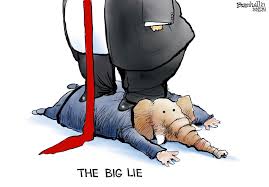

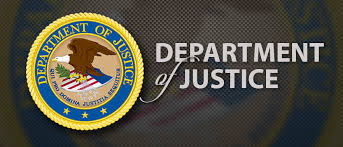
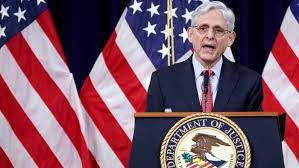
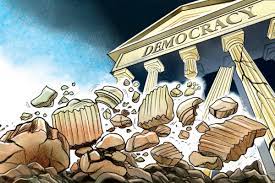

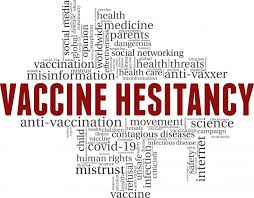
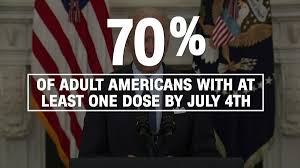


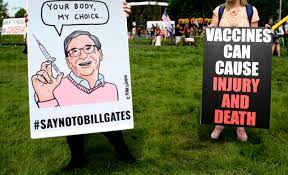
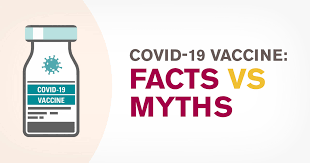
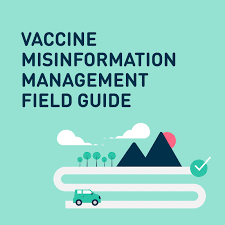


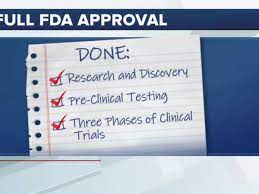


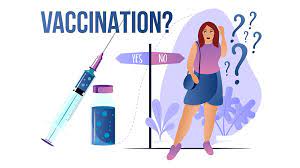
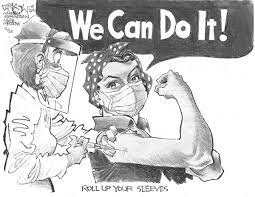
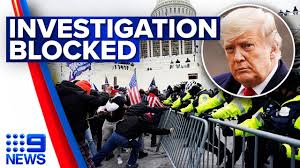
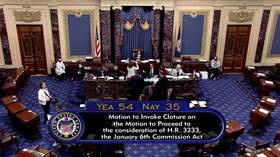
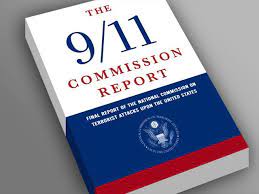
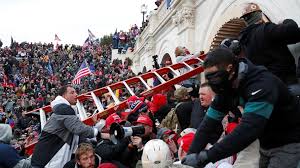
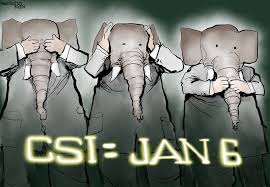
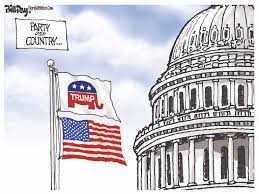

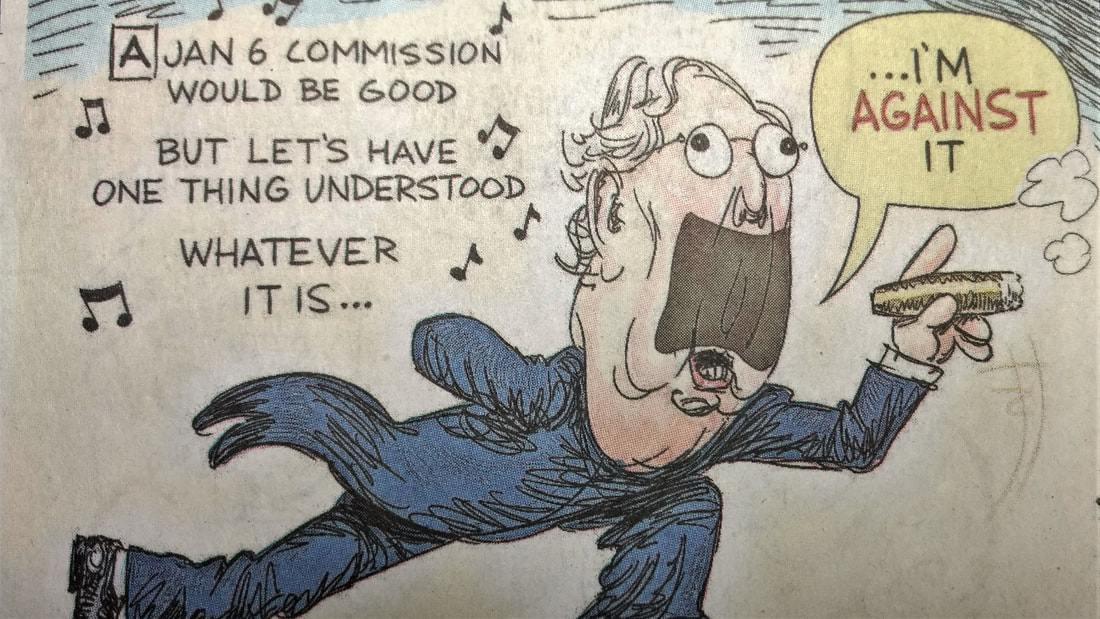

 RSS Feed
RSS Feed